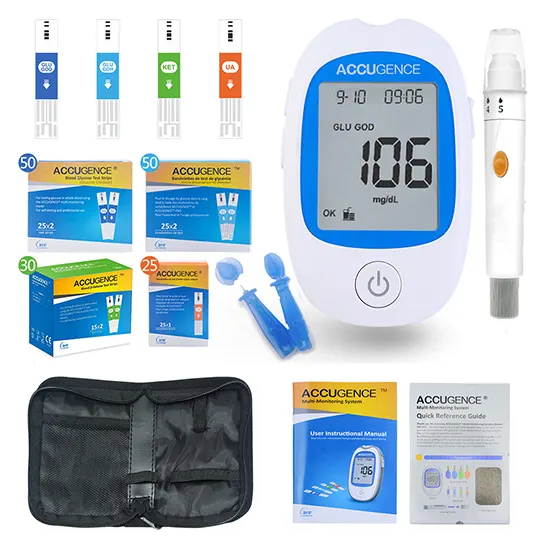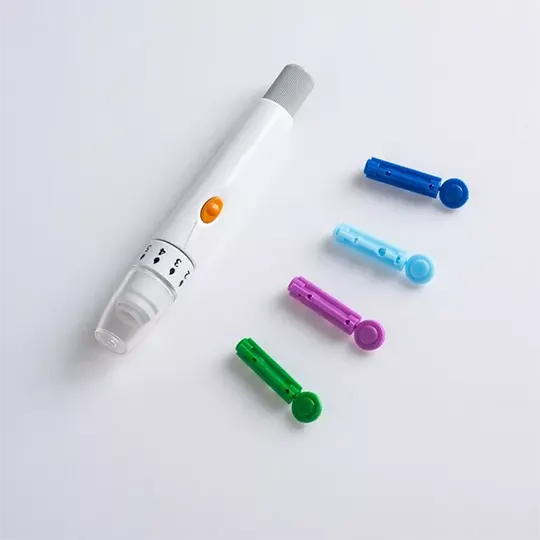Nicotil
Nicotil - General Information
A water-soluble vitamin of the B complex occurring in various animal and plant tissues. It is required by the body for the formation of coenzymes NAD and NADP. It has pellagra-curative, vasodilating, and antilipemic properties. [PubChem]
Pharmacology of Nicotil
Nicotil and niacinamide are indicated for prevention and treatment of vitamin B3 deficiency states. Vitamin B3 (Nicotil) also acts to reduce LDL cholesterol, triglycerides, and HDL cholesterol. The magnitude of individual lipid and lipoprotein responses may be influenced by the severity and type of underlying lipid abnormality. The increase in total HDL is associated with a shift in the distribution of HDL subfractions (as defined by ultra-centrifugation) with an increase in the HDL2:HDL3 ratio and an increase in apolipoprotein A-I content. Vitamin B3 (Nicotil) treatment also decreases the serum levels of apolipoprotein B-100 (apo B), the major protein component of the VLDL (very low-density lipoprotein) and LDL fractions, and of lipoprotein-a, a variant form of LDL independently associated with coronary risk.
Nicotil for patients
Patient Information:
Diabetic patient and patient with liver problems or peptic ulcer should take
niacin with caution and should monitor liver funtion test, blood glucose
frequently.
Niacin should also used with caution in patients with elevated uric acid levels,
gout, unstable angina, and acute phase of myocardial infarction.
Niacin may interact with some antihypertensive drugs, aspirin, and alcohol. Patient should
check with a health professional before start taking niacin or start a new medication.
Nicotil Interactions
Interactions for Vitamin B3 (Niacin):
Antihypertensive Therapy: Nicotinic acid may potentiate the effects of ganglionic blocking agents and vasoactive drugs resulting in postural hypotension.
Aspirin: Concomitant aspirin may decrease the metabolic clearance of nicotinic acid. The clinical relevance of this finding is unclear.
Other: Concomitant alcohol or hot drinks may increase the side effects of flushing and pruritus and should be avoided at the time of drug ingestion.
Nicotil Contraindications
Contraindications for Vitamin B3 (Niacin):
Nicotinic acid is contraindicated in patients with a known hypersensitivity to any component of this medication; significant or unexplained hepatic dysfunction; active peptic ulcer disease; or arterial bleeding.
Additional information about Nicotil
Nicotil Indication: For the treatment of type IV and V hyperlipidemia. It is indicated as ajunctive therapy.
Mechanism Of Action: Nicotil binds to Nicotinate D-ribonucleotide phyrophsopate phosphoribosyltransferase, Nicotinic acid phosphoribosyltransferase, Nicotinate N-methyltransferase and the Nicotil receptor. Nicotil is the precursor to nicotinamide adenine dinucleotide (NAD) and nicotinamide adenine dinucleotide phosphate (NADP), which are vital cofactors for dozens of enzymes. The mechanism by which niacin exerts its lipid lowering effects is not entirely understood, but may involve several actions, including a decrease in esterification of hepatic triglycerides. Nicotil treatment also decreases the serum levels of apolipoprotein B-100 (apo B), the major protein component of the VLDL (very low-density lipoprotein) and LDL fractions.
Drug Interactions: Lovastatin Risk of severe myopathy/rhabdomyolysis with this combination
Food Interactions: Avoid alcohol.
Take with food.
Generic Name: Niacin
Synonyms: Acide Nicotinique; Acidum Nicotinicum; M-Pyridinecarboxylic Acid; NAH; Nicotine Acid; Nicotinic Acid; Pyridinecarboxylic Acid; Pyridylcarboxylic Acid; Vitamin B3; 3-Pyridinecarboxylic acid
Drug Category: Vasodilator Agents; Antilipemic Agents; Vitamins (Vitamin B Complex)
Drug Type: Small Molecule; Nutraceutical; Approved
Other Brand Names containing Niacin: Akotin; Anti-Pellagra Vitamin; Apelagrin; Bionic; Daskil; Davitamon PP; Diacin; Direktan; Efacin; Kyselina Nikotinova; Linic; NICO; Naotin; Niac; Nicacid; Nicangin; Nico-Span; Nicocidin; Nicocrisina; Nicodan; Nicodelmine; Nicodon; Niconacid; Niconat; Niconazid; Nicorol; Nicosan 3; Nicoside; Nicosyl; Nicotamin; Nicotene; Nicotil; Nicotinipca; Nicotinsaure; Nicovasan; Nicovasen; Nicovel; Nicyl; Nipellen; Nyclin; P.P. Factor; Pellagra Preventive Factor; Pellagramin; Pellagrin; Pelonin; Peviton; PP Factor; Sk-Niacin; Tega-Span; Tinic; Vitaplex N;
Absorption: Both nicotinic acid and nicotinamide are efficiently absorbed from the stomach and small intestine.
Toxicity (Overdose): Nicotinic acid can cause vasodilation of cutaneous blood vessels resulting in increased blood flow, principally in the face, neck and chest. This produces the niacin- or nicotinic acid-flush. The niacin-flush is thought to be mediated via the prostaglandin prostacyclin. Histamine may also play a role in the niacin-flush. Flushing is the adverse reaction first observed after intake of a large dose of nicotinic acid, and the most bothersome one. LD50 7000 mg/kg (Rat)
Protein Binding: Not Available
Biotransformation: Hepatic
Half Life: 20-45 minutes.
Dosage Forms of Nicotil: Capsule Oral
Capsule, extended release Oral
Powder Oral
Tablet Oral
Tablet, extended release Oral
Solution Intramuscular
Tablet, extended release Oral
Tablet Oral
Powder Oral
Capsule, extended release Oral
Capsule Oral
Solution Intramuscular
Chemical IUPAC Name: pyridine-3-carboxylic acid
Chemical Formula: C6H5NO2
Niacin on Wikipedia: https://en.wikipedia.org/wiki/Niacin
Organisms Affected: Humans and other mammals




